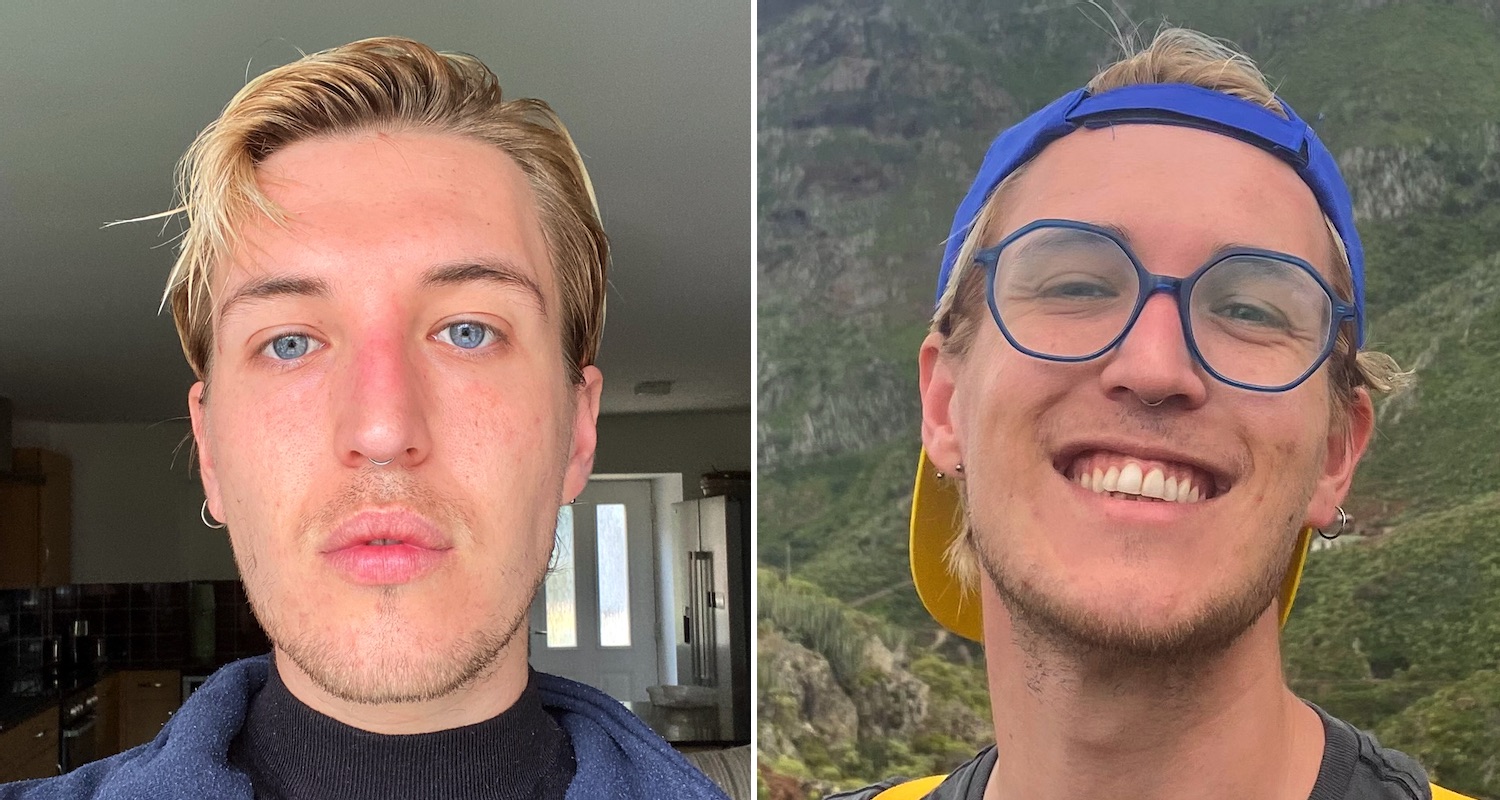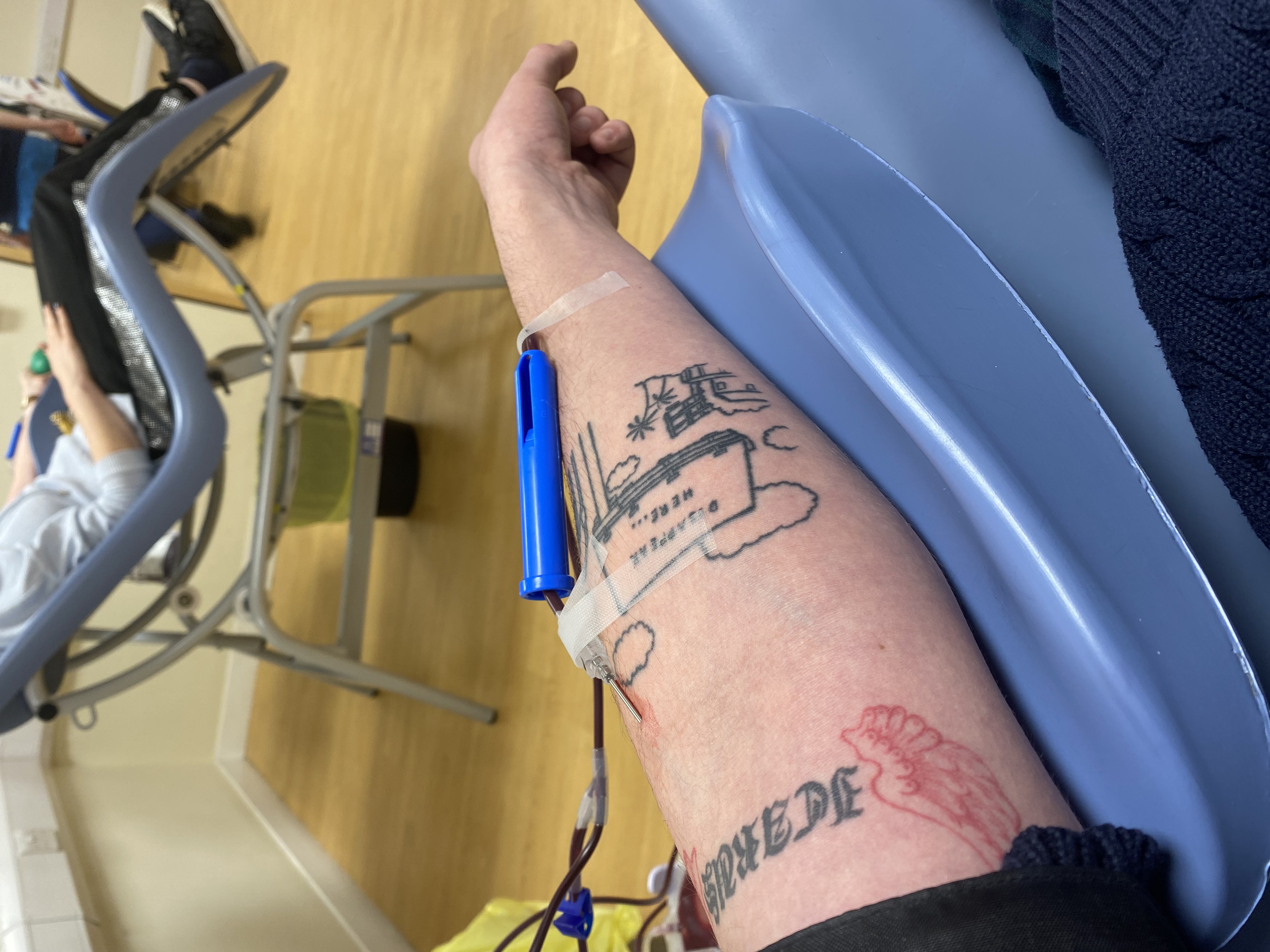Reach’s Liam Gilliver on being an LGBTQ journalist and representation
In partnership with myGwork.

Words and pictures: provided
Liam Gilliver from Reach talks about how journalists can move LGBTQ+ rights forward, the media’s role in social progress, and ensuring we don’t regress.
Liam currently has a hybrid role. He’s an Opinion Writer for the Mirror, penning Op-Eds on anything from the monarchy to the Jeremy Kyle Show. He also works across four national newspaper titles as Reach’s Editorial Newsletter Lead.

“I was always interested in journalism and went to the University of Sheffield to study journalism there,” Liam said. “I interned at Attitude Magazine and Gay Times as I was always interested in LGBTQ+ media.” After graduating, Liam freelanced and worked for a green publication before joining Reach last year.
Only recently, Liam wrote a review about the newly launched Netflix show Heartstopper. He wished he had a story like that to watch when growing up – and the piece resonated with him deeply. Following the publication of his review, he was contacted by the BBC to go on Radio 5 Live, which is now one of his best career highlights.
As well as this, Liam has written extensively about blood donation in the queer community, writing for The Independent about his decision to abstain from sex during the pandemic to donate blood. Months later, the rules relaxed.
“Even though there is still change to come. Me and my boyfriend now regularly donate blood together, and it’s amazing to think that I have potentially been part of those changes,” he explains. The rules around donating blood changed in 2021, meaning sexually active gay and bisexual men in monogamous relationships could donate blood for the first time.

Originally from Chesterfield, a small town near Sheffield, Liam always had a journalistic spark. “I had a very traditional working-class background, you know, council boy through and through. I’m proud of that. There aren’t many working-class journalists that are also LGBTQ+ – but it’s important for our voice to be heard.”
Liam would write for the school bulletins in the sixth form and his local paper, the Derbyshire Times. At only twenty-four, Liam has achieved a lot in a short time.
“It’s incredible when you get those really special articles that match with what you’re truly passionate about,” he says. “When there’s a news story that lines up with what I care about, that’s really nice, and naturally, there’s a lot of energy that goes into those pieces.”
Talking about the role of the media, Liam explains how it is impacted by both sides. “When readers interact with content, and there’s a real demand there, whether that is with the pure number of views or whether it’s in the comments, that hugely shapes what news outlets write about. As journalists, I think our role is to elevate voices from marginalised communities that have not always had a very strong platform. Historically there is a lot of room for improvement when it comes to representation.”
Hand in hand with having diverse staff to help reflect those diverse voices comes the importance of awareness. Liam is conscious of the fact that the experiences within the LGBTQ+ community can be vastly different. “Coming out is a unique experience for every person, and within the community, we aren’t one giant monolith that thinks and acts in the same way. There are all manner of opinions and experiences within the community. I grew up working-class and in a small town, so that is unique to me and shapes my outlook.”

When Liam speaks about diversity in the media, he stresses that it shouldn’t be a box-ticking exercise, and that diversity of religion, education, background, ethnicity, gender, age, etc., are all represented.
The media always has a role to play in progress. “Whilst things have improved so much, since the eighties, for example, the portrayal of gay men during the AIDS crisis, that doesn’t mean we can be complacent now. I think it is really important that someone who knows why the story is important is the one covering it.”
Liam’s review of Heartstopper is a perfect example of that, the impact it had on him as someone who never had that content growing up, is very different from somebody that just stumbled across it on Netflix. “There’s also much more protection from regulators and, as a journalist, or even as a reader, we can flag something if we think it is breaching any of the IPSO codes.”
Another area where Liam pushes for representation is in the stories he’s asked to cover. He has written such a huge breadth and depth of topics even at this early stage in his career: from the government questioning refugees’ sexuality, to how he is still waiting impatiently for Love Island to feature gay contestants.
“I’ve always been so supported, and all of the content is really well received. To be allowed to do it is one thing, but to be praised and really encouraged, is a different thing entirely. I will always be grateful to Reach for that”.

Reach has a network called Reach Out, which enables people to share their stories and connect with one another. “It makes you feel like you have a place – the opposite of being isolated. Being in a pandemic and where I am in my life, having moved from university to work in a largely remote world, it could easily be the case that you end up feeling secluded or alone”.
Liam is actively involved as the Communications Lead for ReachOut and has created a timeline of LGBTQ+ history for their internal employee sites. The network also partners with the Terrence Higgins Trust, a charity dedicated to ending the stigma of HIV.
“It’s monumental for a group like us to be working with them to change the narrative that the media perhaps held onto for quite a long time. It shows how everyone is capable of change and fighting for equal representation.”
The journey for LGBTQ+ equality isn’t over though, as Liam points out: “We have to keep pushing for a higher standard of acceptance. Well, acceptance is really a low bar. We want equality, not just a facade of that. We need to hold people accountable, to keep writing about society’s injustices. The media’s perceptions and treatment of our community are intrinsically linked, so there’s a level of responsibility there. We need to keep pushing and make sure we don’t slip back. The LGB ‘conversion therapy’ ban is a perfect example of that; we need to keep moving forward, using our voices, and we shouldn’t be complacent about the fact transgender people were excluded from that policy and how dangerous the ramifications of that are.”
Reach is a proud partner of myGwork, the LGBTQ+ business community. Find out more about job opportunities at Reach here.
